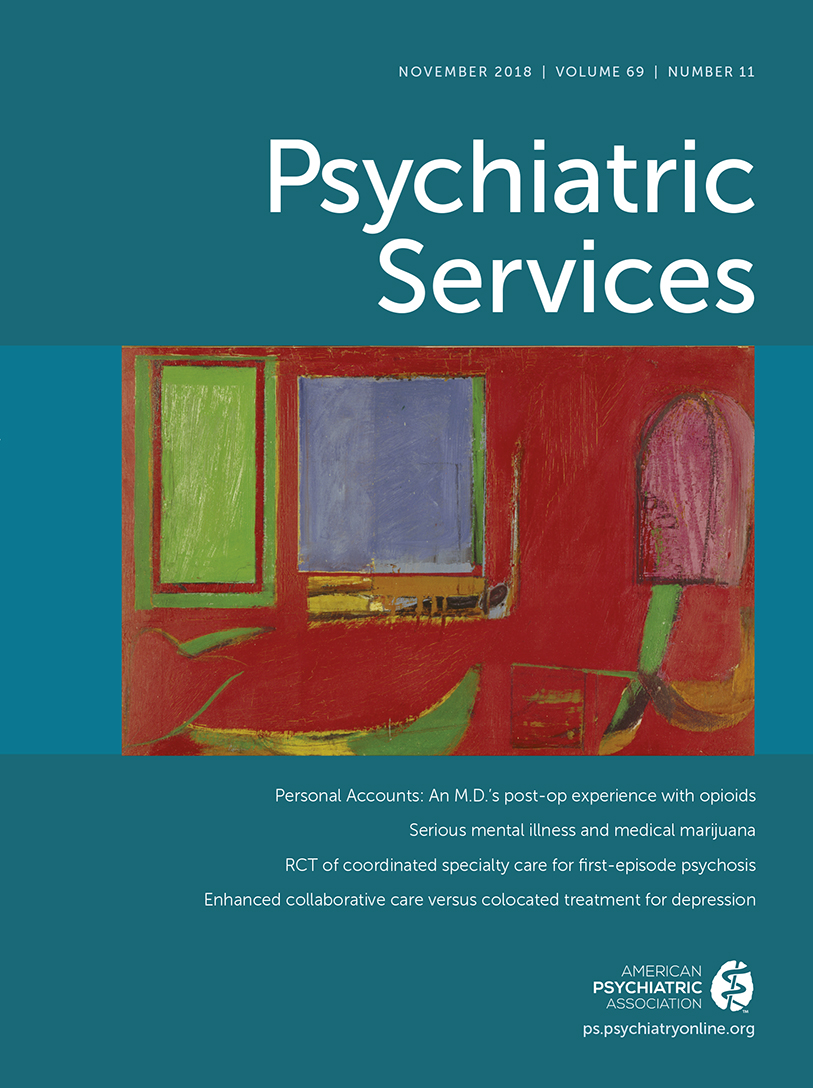Racial and Ethnic Differences in Use of State-Operated Inpatient Substance Abuse Services, 2004–2005 Versus 2010–2011
Abstract
Objective:
This study examined ethnic-racial differences in referral source, length of stay, legal status, and diagnosis in state-operated substance abuse inpatient treatment in Connecticut.
Methods:
Data from 2004–2005 (N=1,484) and from 2010–2011 (N=4,529) were investigated with regression analyses.
Results:
At both time points, African Americans were more likely than other groups to be referred by criminal justice sources, Hispanics were more likely than whites to be referred by other sources, and whites were more likely than African Americans to have emergency-crisis admissions; length of stay was shorter for Hispanics than for whites and longer for African Americans than for whites and Hispanics; and Hispanics were less likely than other groups to have an alcohol use disorder, more likely than other groups to have a drug use disorder, and more likely than whites to receive a discharge diagnosis of a personality disorder from cluster B.
Conclusions:
Targeted interventions to address racial-ethnic differences in inpatient addiction treatment are needed.



